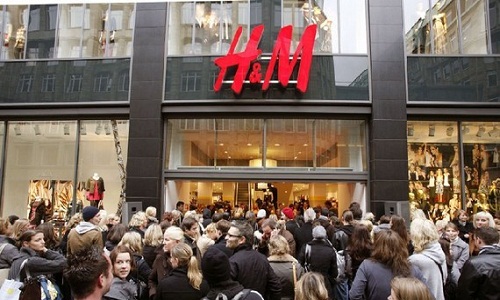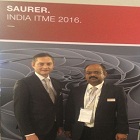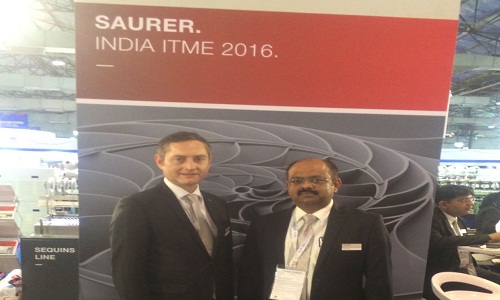FW
Due to subdued arrivals, cotton prices are ruling high on subdued arrivals across the country. Lack of demand in apparels industry has impacted arrivals and although farmers are getting high prices, they are preferring to hold back because of the currency shortage.
Although the country has contracted some 6 lakh bales for export to countries like Bangladesh and Vietnam, traders are finding it difficult to meet contractual obligations because there is no cotton in the market, MM Chokalingam, Director, Marketing, Cotton Corporation of India (CCI) claimed. According to him, prices are playing in the range of Rs 5,200 per quintal while minimum support prices are priced at Rs. 4,160 per quintal. This is because some traders are still offering old currency notes to farmers. Some clarity will emerge by the month-end once the currency issue closes. Till then, prices will continue to remain high. India is the world’s largest producer of cotton and also the second largest exporter. The present cash crunch is leading to delays in sales of cotton and is creating shortages in the domestic market as well as reducing supplies to the global market, the International Cotton Advisory Committee (ICAC) said in its latest report.
Chokalingam says cotton arrivals are presently in the range of 1.20 lakh bales across the country on a daily basis. Given existing cotton prices, there is little need for the Corporation to go in for MSP operations. International rates are higher by 4-6 cents than the domestic market, but traders do not stand to gain since they are unable to supply cotton as per the contract.
Last year, Pakistan turned out to be the biggest importer having exported some 20 lakh bales from India. This time, however, because of border tensions, cotton export to the country has been affected, industry people maintained.
Bangladesh has contracted some 2 lakh bales, China the same amount while Vietnam could import some 1 lakh bales from India. Concerns were expressed in the industry that the supply crunch had driven up prices higher than international prices and since the traders are unable to meet obligations, buyers could look to other markets.
India is the world’s largest producer of cotton and also the second largest exporter. The present cash crunch is leading to delays in sales of cotton and is creating shortages in the domestic market as well as reducing supplies to the global market, the International Cotton Advisory Committee (ICAC) said in its latest report.
As the deadline of the World Trade Organization approaches on December 11, it is likely that European goods made with parts and materials imported from China would see an escalation in prices. On that day, the European Union could grant China ‘market economy status’ making it harder under WTO rules for the EU to protect its industries from what it deems as unfair trade practices by Beijing.
Or, it may so happen that the EU could draft new trade rules that do away with the distinction between market and non-market economies that the bloc has used in the past. The odds are against China getting the market title by the deadline, it is understood.
Based on a proposal made public last month, the European Commission, the EU’s executive arm, aims to tighten its rules against foreign-government subsidies and dumping or exporting products at below domestic prices. A new slate of European rules is likely to punish those that benefit from Chinese subsidies and discourage Chinese companies from dumping.
Fashion is big business in Africa and with respect to this, the African Development Bank (ADB) wants economies in the African continent to cash in on the billions to be made. For this to happen, Africa's fragmented fashion industry initially needs to be unified. Ten top countries in Africa rake in $2.5-billion in apparel exports representing only 0.55 per cent of the global figure. In the next decade, the global fashion industry is expected to double generating up to $5-trillion, the ADB disclosed. The launch of the bank's online platform Fashionomics has been put in to help.
A prototype of the website provides access to research reports details of design schools, access to funding models and financing sources and lists of jobs and business opportunities. The free online initiative will also provide a forum for industry players as well as online tutorials to those interested in Africa. Fashion veteran Clive Rundle says that the access to funding and a lack of financial know-how have been challenges for many designers.
"Ruling the world with their fast fashion segment, H&M, Zara and Forever 21 have been faring high on being affordable, trendy and disposable. Of late, a new phenomenon is being witnessed owing to the festive season wherein shoppers—especially millennials, the target group for fast-fashion brands —are increasingly looking for clothes made of higher-quality materials or they are keeping their existing clothes longer. Some are even seeking apparel that’s been reused or recycled."

Ruling the world with their fast fashion segment, H&M, Zara and Forever 21 have been faring high on being affordable, trendy and disposable. Of late, a new phenomenon is being witnessed owing to the festive season wherein shoppers—especially millennials, the target group for fast-fashion brands —are increasingly looking for clothes made of higher-quality materials or they are keeping their existing clothes longer. Some are even seeking apparel that’s been reused or recycled.
More than 14 per cent of US consumers looked for apparel and accessories made from natural materials in 2016, up from 12.9 per cent last year, says a Euromonitor International survey. Shoppers looking for clothes that were reused or recycled rose 2 per cent this year. And more millennials looked for ‘sustainably produced’ apparel and accessories than any other age group. This shift to so-called sustainable clothing is a warning sign for the fashion industry that wants consumers to rapidly change styles and move on to the next hot trends.
Holiday trend for 2016

The challenge may come earlier than big retail chains expect. Consumers are more willing to shop at niche, smaller companies this season, according to Deloitte LLP. Some of these retailers tout sustainable premiums for longer-lasting, higher-quality products—think, Zady or Everlane. But fast-fashion companies are trying to respond. In 2013, H&M launched a worldwide garment-collecting initiative encouraging consumers to reuse and recycle their clothes. The chain also sells a ‘conscious collection,’ a clothing line created entirely from sustainable materials. Zara launched its first sustainable line, Join Life, in September. The collection consists of simpler designs and clothing made from recycled wool, organic cotton and Tencel—a fabric that includes regenerated wood.
Though companies have already started, these pieces make up just 1.5 per cent of Zara’s assortment and 3.5 per cent of H&M’s, said Emily Bezzant, head analyst at the fashion-tracking firm Edited. And the very nature of high-turnover fast-fashion companies strikes many as unsustainable, she said. According to experts, fast fashion and sustainability can’t go hand in hand. The biggest challenge for retailers will be to make sustainable products affordable and accessible to millennials.
There has been some progress toward that end. H&M’s Conscious Collection has an affordable median price of $17.99. At Zara’s Join Life line, a basic strappy top cost $9.90—the same as their main line. Lowering prices for sustainable collections would help these businesses stay relevant, as most consumers shop at H&M and Zara because of the cheap price tags.
Recycling makes perfect sense
Christina Kim, a designer, highlighted, it’s actually been more economical for her to use recycled scraps to make her clothing. Kim founded Los Angeles-based Dosa after moving from Seoul. Her idea started in West Bengal, where she began collecting old saris to incorporate into new designs.
Kim tracked her expenses in both regular and recycled production. She found that when using recycled fabric, she was able to spend less on materials—but had to shell out significantly more for labour. With traditional clothing production, 40 per cent of her expenses went to materials, 53 per cent to labour, and 7 per cent to shipping and other duties. With a recycled production, Kim spent 14 per cent on materials, 81 per cent on labour, and 5 per cent on shipping and duties.
The big companies are taking steps in a similar direction. H&M, for instance, has started minimising waste during textile production. Any leftover material or post-manufacturing waste is recycled into new materials such as recycled wool or recycled cotton by H&M.
"Switzerland-based leading technology provider, Saurer, is going to host an open house on December 11 in Amritsar wherein the company has invited all the Indian clients to participate and have a look at the machinery. This will be followed by a conference aimed at explaining the technical details and know-how of its high-speed machines. Citing reason about selecting Amritsar, Thomas Benzer, Head of sales (Embroidery division), Vice President, Saurer and Rajesh Kapoor, Head (Sales and service—Embroidery), highlight, “When it comes to embroidery, Amritsar, Mumbai, Surat and Delhi are hubs. Even Ludhiana is not popular for embroidery."

Switzerland-based leading technology provider, Saurer, is going to host an open house on December 11 in Amritsar wherein the company has invited all the Indian clients to participate and have a look at the machinery. This will be followed by a conference aimed at explaining the technical details and know-how of its high-speed machines. Citing reason about selecting Amritsar, Thomas Benzer, Head of sales (Embroidery division), Vice President, Saurer and Rajesh Kapoor, Head (Sales and service—Embroidery), highlight, “When it comes to embroidery, Amritsar, Mumbai, Surat and Delhi are hubs. Even Ludhiana is not popular for embroidery. The market for embroidery in Amritsar is concentrated and it makes sense to choose this place as a venue for display. Alone in Amritsar, we have 40-45 customers and they are producing for export purpose. The scale of production is large. Also, Delhi is nearer, well connected and a hub for embroidery exporters. That’s how we have a set up there. India is a big market and we want everyone concerning the segment to gather together. We wish them to exchange their views since the segment is like a big family. People from Delhi and Mumbai are expected to converge there and even we have clients confirming their presence from Surat as well.”
New launches

Besides having focus on an increase of 20 per cent in production, the company has got new launches as well. “We are trying to provide addition value to the customer through our label E3 not only in terms of speed but power saving and energy saving too. The very latest technology we have is in needles bars and borers. We have installed green post carbon material in this, which is used in Formula-1 cars, the technology is cutting edge. Then we have drive concept, it was used in the previous models and has been quite successful. Lots of changes are in the pentacut machine, the machine is very advanced. The whole cutting design has got a new makeover. Frames are entirely different,” elaborates Benzer.
Embroidery industry in India & abroad
The frontrunner markets in the embroidery segment are China, Turkey and India. Currently China and Turkey are slow, so the company is pushing growth horizons in India. “We have got enough storage space for spare parts. The team is entirely new. We are holding customer events very frequently, training the people in the industry, upgrading technology to make India compete in the global space and to make a mark for ourselves. We are working on multiple things to keep the country ahead,” highlights Benzer.
Challenges too abound
The market is highly scattered, unorganised, fragmented and depended upon exporters who are not directly involved into that. The kind of set up where everything is done in-house on a corporate level is missing here in India. “We don’t have big players over here. Having said that, we are very optimistic about the market, it possesses everything what it takes to be a hub. All we need is to be more organised,” avers Benzer. The market is catering to too much to the local market. The adoption of technology is not high to compete in the global space. Our company is focussing earnestly in these areas and helping country to be competitive in the embroidery space, adds Kapoor.
ITMA Asia vis-à-vis ITME India
“We are frequently visiting India and China, Chinese are very disciplined, but the drawback is they are expensive too. This way India has a great chance to grow, but it needs to improve upon its technology to compete better, it has potential. Chinese are better quality-wise, Indians look for cheaper things, it is a mindset issue also, Indians are capital-shy people. Embroidery segment requires big investment and we are ready to help them. At the moment, china is a bit slow,” concludes Benzer.
Soorty a vertically integrated denim manufacturer from Pakistan has a tradition of innovation and sustainable manufacturing. The zero water blue capsule collection is a milestone for the denim industry because it is vertically sustainable. Vertical sustainability is about being green throughout the entire production process, from raw fiber up to the ready, washed garment.
The zero water blue capsule includes the use of special features like organic cotton, BCI, recycled fibers, zero water waste dyeing, eco-finishing, responsible laundering with ozone, laser, e-flow, green screen chemicals and measuring impact with Jeanologia’s EIM.
Zero water blue reduces water consumption by 90 per cent in fabric manufacturing. Green chemicals, processes, and machines in the laundry reduce water consumption per garment to 1.6 liters. Zero water blue utilizes only 3.1 liters of water per garment from raw fiber up to the finished garment. And this process has zero impact on the color and aesthetics of the final product.
Soorty has a capacity of 3.2 million meters per month. Out of this around 1.4 million meters is used to produce 60,000 garments a day and the remaining 1.8 million is available for exports of fabric. Currently, Soorty is mainly doing bottoms, specializing in constructing high quality fabrics for use in women’s high stretch jeggings.
Speakers from the readymade garment (RMG) sector, participating in a seminar in Dhaka, said the RMG industry in Bangladesh will be driven by technology and have competitive advantage over other regions. New techniques of management and human resource development will also be required to further improve the scope of the RMG sector, opined state minister of foreign affairs, Shahriar Alam.
PricewaterhouseCoopers (PwC) Bangladesh had organised the seminar titled 'Taking Bangladesh Apparel Sector Forward' where Alam was the chief guest. The minister claimed that all the factories have been made compliant in the recent past. The global market was expanding and it was the need of Bangladesh to diversify its products and markets and lead the garments sector.
He further said that achievements in the RMG sector of Bangladesh are example for many countries and they have been trying to reach this position. The RMG sector in Bangladesh has scope to improve further by applying new techniques of management, human resource development and using the latest technologies and these are essential for achieving the target of $50 billion export earnings from this sector by 2021.
Industry leaders participating in the seminar were of the opinion that technology will be the key enabler to help increase productivity in Bangladesh's labour intensive RMG sector. It would need to innovate to remain competitive as countries like Africa and Myanmar enter the RMG mix. Access to finance and financial tools will also is the key to drive the sector's growth.
In its endeavour to boost ‘Made in Rwanda’ drive, the government has announced a tax exemption for imports of leather and textile raw materials. The decision was taken after consultation with local leather and textile manufacturers in the face of government’s policy to ban second-hand leather and footwear products. The decision was implemented on December 2.
Explaining this, Innocent Safari, the Permanent Secretary, Ministry of Trade, Industry and EAC Affairs (MINEACOM) said that the exemption applies to both import duties and value added tax (VAT). According to the ministry, local investors have been paying between 10 and 25 per cent on textile and leather raw materials.
So far this year, the government collected taxes worth Rwf17 billion from imported leather and textile raw materials. The tax exemption applies to local investors recognised by MINEACOM with no limitations on the quantity of leather and textile raw materials to be imported as the country seeks to satisfy the local market demands and export fine products abroad, the official explained. The exemption will not apply to imported finished products but on the importation of machines and raw materials used to make garments and leather products by local manufacturers.
Bangladesh's garment shipments to Italy and Japan increased from July to October. Apparel exports to Italy -- the sixth largest garment export destination for Bangladesh – were up 6.43 per cent year-on-year. Similarly, garment shipments to Japan increased seven per cent year-on-year during the period. Japan is the largest importer of Bangladeshi garments in Asia.
In fiscal 2015-16, garment exports to Italy, where duty-waiver is applied under the European Union's ‘Everything but Arms’ scheme, grew 3.22 per cent year-on-year. Garment exports to Japan were up 18.68 per cent from a year earlier. Bangladesh’s resilience boils down to a combination of the world’s lowest wages after Myanmar and Sri Lanka, the right skills and the fact that China has become less competitive in recent years.
Even though Bangladesh's clothing exports are booming, the already slim profit margins of manufacturers being eroded further as pressure for cost savings and improved safety intensifies. Garment exporters are worrying about profit margins being squeezed due to increased compliance costs. Most of Bangladesh’s garment exporters are operating with a profit margin of just three per cent. Firms have to spend on upgrading facilities to meet safety compliance standards. Adding to the strain, garment exporters are under pressure to further reduce prices to retain customers.
India is the world's largest producer of cotton and also the second largest exporter. The present cash crunch is leading to delays in sales of cotton and is creating shortages in the domestic market as well as reducing supplies to the global market, the International Cotton Advisory Committee (ICAC) said in its latest report.
The ongoing demonetization process, marked by insufficient supply of new currency notes of Rs 500 and Rs 1,000 notes, has resulted in reduced supply of cotton to the global market. Since much of Indian economy operates on a cash basis including payments to farmers, the present situation has led to delays in sales and shipments of cotton.
Due to the delay in Indian cotton reaching the global market, other countries may benefit from increased exports in the short term, said ICAC. It has predicted exports of India to fall by 34 per cent to 825,000 tons in 2016-17. However, it added that the effect of the currency crisis will be limited as it is likely to be resolved in the near future.
Exports from the US are projected to increase by 29 per cent to 2.6 million tons, remaining the world's largest exporter. The sizeable crop anticipated in Australia is likely to cause its exports to increase by 21 per cent to 750,000 tons. Exports from Burkina Faso and Mali, the sixth and seventh largest exporters, are expected to increase by 13 per cent to 295,000 tons and by 17 per cent to 255,000 tons, respectively, as a result of larger crops.
According to ICAC, cotton from these origins may replace some of India's exports if their crops reach the global market soon. Meanwhile, for the second consecutive season, Bangladesh is expected to be the largest importer of cotton in 2016-17 as its mill use continues to grow with imports expanding by 1 per cent to 1.4 million tons.












